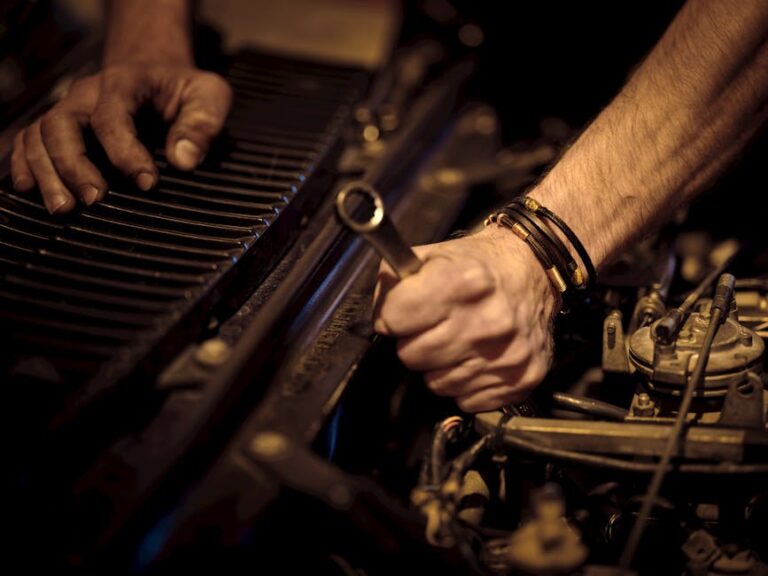Table of Contents
- The Big Dogs on the Block
- Waste Management, Inc. (WM)
- Republic Services
- Republic Services
- Veolia Environnement
- Veolia Environnement
- SUEZ
- Specialised Stuff
- Clean Harbors
- Stericycle
- What About the Recycling Game?
- Casella Waste Systems
- The Future, Maybe?
- WM Renewable Energy
- Covanta
- The Tech Side of Things
- Enevo
- Rubicon Technologies
- Biffa
You wanna talk about rubbish, huh? The stuff nobody wants to think about, but it’s always there, piling up. Been in this game long enough, seen plenty of cycles come and go. People get all excited about “green initiatives” and then the price of oil drops and suddenly that recycled plastic isn’t so popular. Happens every single time. It’s a dirty business, literally, but someone’s gotta do it. Always will be.
You hear about all these shiny new ideas, like smart bins and AI sorting. Good for a laugh, some of it. A lot of it just sounds like someone in a fancy office trying to justify their salary, you ask me. The real work, it’s still about trucks, big holes in the ground, and folks who don’t mind getting their hands a bit grubby. That’s the truth of it.
The Big Dogs on the Block
When you look at the top of the heap, so to speak, you’ve got a few names that just dominate. They always have, always will. They run the show, mostly. They own the landfills, they own the collection routes. You can’t just waltz in and start picking up trash on their patch. It just doesn’t work that way, never has.
Waste Management, Inc. (WM)
This lot,
Waste Management, Inc. (WM)
, they’re the undisputed heavyweights, especially over in the States. Got their fingers in every pie. Collection, landfills, recycling plants, all of it. They handle a shocking amount of the stuff that gets tossed out every day. Driving down the highway, you’ll see their big green trucks everywhere, like an army of them. You ever think about how many trucks that is? Thousands. They move more trash in a day than most small towns produce in a year. It’s mind-boggling, actually. I remember back in ’08, everyone was tightening their belts, but people still had to throw things out. Their stock dipped, sure, but they just kept on hauling. They’re like cockroaches, in a good way. They just persist.
Republic Services
Then you got
Republic Services
. Another colossal outfit, same kind of deal. They’re everywhere too, right alongside WM. You might have one picking up your cans, or the other. Depending on where you live, it’s like a territorial thing. They bought up so many smaller outfits over the years, just swallowed them whole. It’s the nature of things, really. Big fish eats little fish. Always has been. They’ve got a massive network. Landfills, recycling centres. Pretty much everything you’d expect. Sometimes I wonder if these big companies are really doing things differently, or if they’re just doing more of the same. But then, it’s not exactly a field that changes on a dime, is it?
Veolia Environnement
Now, cross the pond, you start seeing names like
Veolia Environnement
. These folks, they’re French, and they operate all over the world. Not just waste either, they do water, energy, the whole environmental shebang. Proper global players. They got big contracts with cities and industrial sites. Their game’s a bit more diverse than just picking up your old pizza boxes. They’re often involved in some proper complex stuff, like treating hazardous waste or recovering materials from industrial processes. It’s a different scale, a different kind of problem they’re solving. You can see their trucks even down under in Sydney, if you keep an eye out. They’re a big deal.
SUEZ
And right there with Veolia is
SUEZ
, another French giant. They used to be one big company, then they split, then they were fighting over who buys who. A real soap opera, that was. But they’re back at it, another massive global presence in water and waste. They’ve got operations in places you wouldn’t even expect, handling everything from municipal waste to industrial goo. They deal with some serious chemistry, proper engineering challenges. Not your typical garbage men, if you catch my drift. They’re looking at things like waste-to-energy, turning what we throw out into power. Makes sense, doesn’t it? But then, there’s always a catch. Burns good, that stuff, but there’s always a stink, figuratively and sometimes literally.
Specialised Stuff
It ain’t all just general household trash, you know. There’s a whole different side to this business, the stuff that makes you scratch your head or hold your nose.
Clean Harbors
Consider
Clean Harbors
. These boys, they’re in a league of their own. Hazardous waste. Think oil spills, chemical cleanups, old paint thinner drums, stuff that could melt your shoes. Not for the faint of heart, that kind of work. They send their crews into some truly nasty situations. When a truck tips over with something toxic, or a factory needs to get rid of a whole lot of bad chemicals, these are the folks you call. You wouldn’t catch me doing it, not in a million years. But someone has to. It’s essential, truly.
Stericycle
And then there’s
Stericycle
. Medical waste. Needles, bandages, biohazards. You don’t want that stuff just chucked in with your coffee grounds, do you? Absolutely not. They deal with hospitals, clinics, labs, making sure all that potentially dangerous biological material is disposed of safely. It’s a whole different regulatory beast, a lot of strict rules and protocols. No room for mistakes there.
What About the Recycling Game?
Everyone talks about recycling, don’t they? And yes, it’s important. We all want to do our bit. But let’s be real, the recycling market is a rollercoaster. One minute, China wants all our plastic, the next, they don’t want any. Then it’s piling up in warehouses, or worse, getting landfilled anyway. Makes you wonder sometimes, doesn’t it? Is all that sorting even worth it?
Casella Waste Systems
Up in the Northeast, you’ll find
Casella Waste Systems
doing a fair bit of work. They’re big on recycling, on trying to keep material out of the landfill. They’ve invested in some proper machinery to sort stuff. I hear they’re trying out all sorts of tricks to make more money off the waste stream, pulling out things people don’t even think about. Plastics, metals, cardboard. It’s a constant battle with the market price, that. You’re always chasing it. You ever buy a bale of old newspapers? Probably not, but Casella’s trying to find a buyer for it. They’re in that commodity game.
The Future, Maybe?
WM Renewable Energy
Some of these big companies, they’re not just burying it anymore. They’re trying to make something out of it.
WM Renewable Energy
, a part of Waste Management, for instance. They’re capturing methane gas from landfills and turning it into power. Smart, right? Landfills, they just sit there, festering, producing all this gas. Might as well use it. It’s not pretty, but it’s a way to get something useful from all the junk.
Covanta
Or take
Covanta
. They’re all about waste-to-energy. They burn the trash, produce electricity. It’s a hot topic, that one. Some folks love it, some hate it. Air quality concerns, you know. But it certainly gets rid of a lot of waste volume, and it makes power. So, you got to weigh it up. Is it cleaner than a coal plant? Probably. Is it perfectly clean? Nah, nothing ever is.
What’s the real deal with that waste-to-energy thing? People always ask me about it. My thinking is, it’s an option. Not the answer to everything, never is. But better than just letting it sit there in a massive hole forever, getting bigger.
How much of this stuff can we really burn? All of it? No chance. We produce too much.
The Tech Side of Things
There are some smaller outfits, some newer ones, trying to use a bit of brainpower on the problem. Not the big boys, necessarily, but people trying to get smart about what’s going where.
Enevo
Out of Finland, I heard about
Enevo
. They make sensors you put in bins. Tells you when they’re full. Sounds simple, doesn’t it? But if you know which bins are full and which aren’t, you don’t send a half-empty truck rumbling down a street. Saves on fuel, saves on driver time. Cuts down on carbon emissions, all that good stuff. It’s a small thing, but it’s a smart thing. You want to save money, you gotta be clever about how you run your routes. This helps with that.
Rubicon Technologies
Then there’s
Rubicon Technologies
in the US. They’re trying to be like an Uber for waste. Connecting businesses that need their trash picked up with independent haulers. Trying to make it all a bit more transparent, a bit more efficient. It’s a digital platform. Some folks say it’s the future. Others, the old-timers, they just shake their heads. They’ve seen these ‘disruptors’ come and go. The established players don’t just roll over. They buy you out, or they just crush you with their scale. That’s how it usually goes.
Can a small tech company actually change the waste industry? Hard to say. It’s entrenched. Very entrenched.
Biffa
Over in the UK,
Biffa
is one of the big names. They do a lot of municipal contracts. Pick up the bins for councils all over the place. Commercial waste too. Landfills, recycling. They’re a significant player across the British Isles. You’ll see their bright orange lorries everywhere, from the M4 corridor down to the narrow lanes of Norfolk. They’re dealing with the same issues as the big US players, just on a different scale, with slightly different local rules. The public outcry when a new landfill is proposed, that’s universal. Nobody wants it in their backyard, everyone wants their trash picked up. Go figure.
So, when someone asks me who the big players are, it’s not a simple list. It’s a global thing, fragmented in some ways, but dominated by a few behemoths in others. It’s about geography, about the type of waste, about whether you’re talking dirty hands or clean energy.
You got to ask yourself, with all this stuff, with the trucks, the landfills, the recycling plants that sometimes send stuff back to the landfill anyway – are we actually getting better at this? Or just moving the problem around? Sometimes I think we just need to make less stuff to begin with. That’s the real trick, if anyone could ever pull it off. But don’t hold your breath. People like their new things. Always have.
Is waste management a profitable business? Oh, absolutely. These companies don’t just exist to be nice. They’re making money hand over fist. There’s a constant supply, you see. Never runs out. It’s about as recession-proof as you can get, practically. People always produce rubbish. Always.
Will we ever truly run out of places to put it? That’s the million-dollar question, isn’t it? Every time a landfill fills up, or reaches capacity, there’s a scramble. Finding new sites, getting permits. Local opposition, naturally. No one wants a giant garbage mountain next to their house. Not ever. It’s a never-ending cycle, this. You fill one, you gotta find another. And the stuff, it don’t just disappear. Not for a long, long time. Some of that plastic, it’ll be there for a thousand years. Maybe more. Gives you a bit to chew on, doesn’t it?












